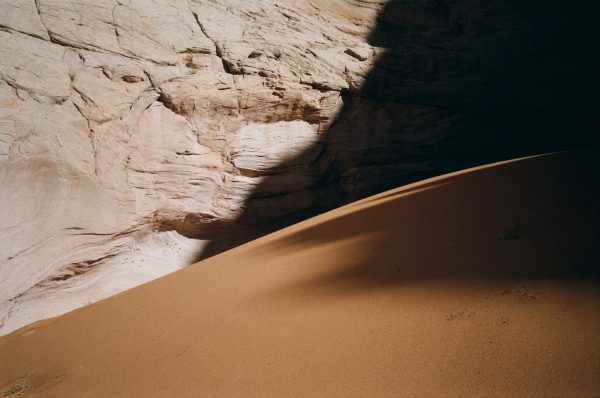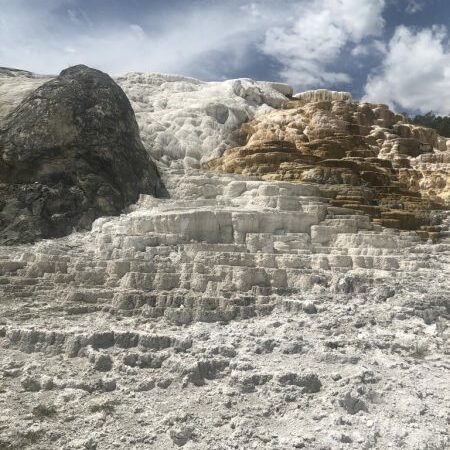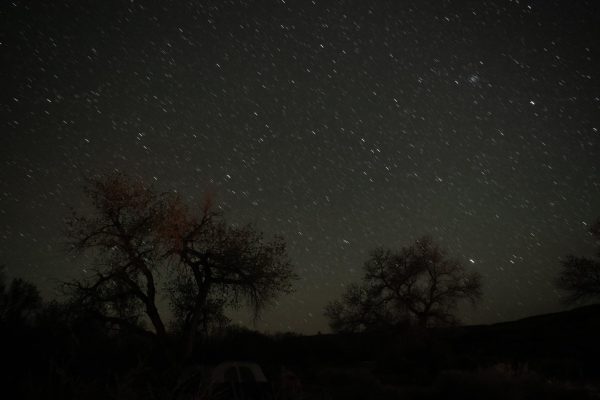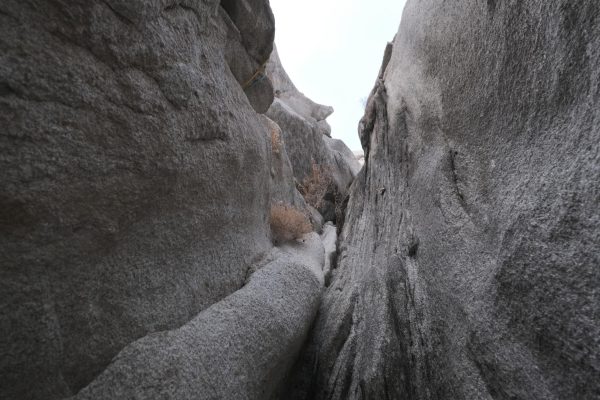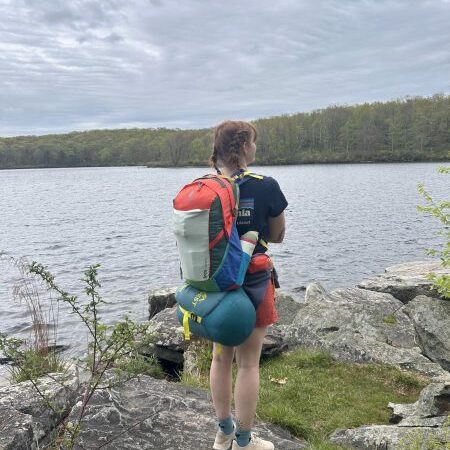Everett, where did you go?
Wanderlust. The word is splashed across stickers and t-shirts throughout Utah, from National Parks to downtown Salt Lake gift shops. Wasatch Magazine is no stranger to the myriad of adventures and ecosystems Utah has to offer, which is why so many of its stories resonate with the spirit of wanderlust.
Wanderlust is a German word that combines “wander” (to hike) and “lust” (to desire). In German, it translates to “enjoyment of hiking.” However, in English its meaning is more expansive: a longing to travel.
There have been only a few moments in my life where I truly felt wanderlust. One recent time was last October, just outside of Hanksville, Utah, while camping with a group of seasoned archaeologists. The world felt so wide while camping in that open red desert. Each night we gathered around the fire, gazing up at the Milky Way as if the stars were pouring down around us. One fellow volunteer, my new friend Steve, played a song he had written with his former band, Tangle Ridge. As the fire danced, he strummed his guitar and sang:
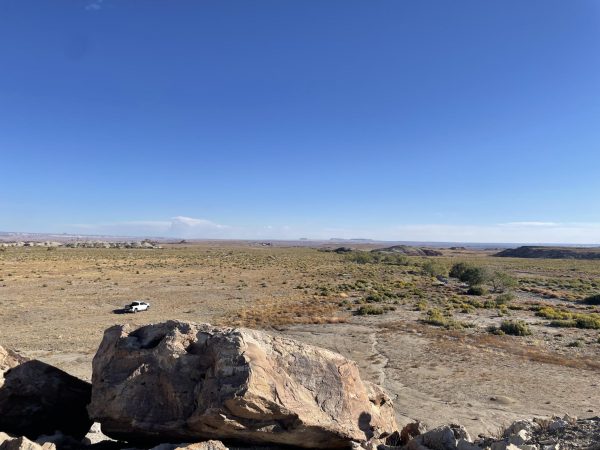
“Where did you go? oh Everett, Where did you go?”
Now, as the leaves turn vibrant oranges and reds reminiscent of the rocks I grew up scrambling across, I have been thinking back on my high school mountain bike team in southern Utah. In my reflections, I’ve concluded that Everett Ruess, the subject of Steve’s song on that crisp October night, would have loved mountain biking.
Everett Ruess was an explorer, artist, poet, and writer in the 1930s. He often ventured out alone, exploring the High Sierra, the California Coast, and the deserts of the American Southwest. In 1934, at 20 years old, he left Escalante, Utah with two pack donkeys to explore the desert. After that he was never seen alive again, leaving my friend Steve to wonder in his song, “Oh Everett, where did you go?”
There are several theories as to Everett Ruess’ fate. Most suggest he likely took a bad fall and ended up broken in a ravine. Others think he was murdered by the angry father of a Mormon girl he loved. Whatever happened, it was the last expedition he would ever embark on.
“Where did you go? Oh Everett, where did you go?”
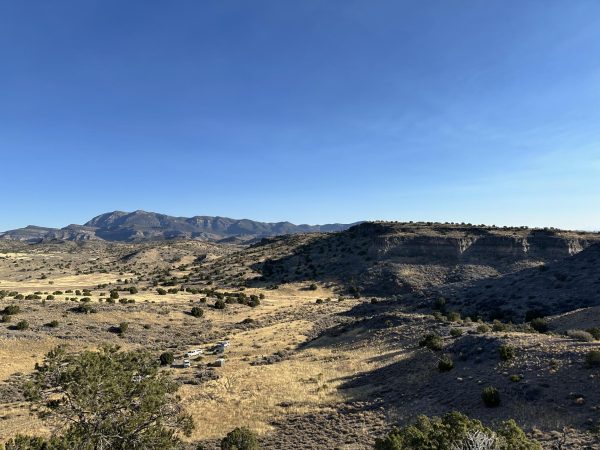
Those melodic words have dug into my brain, burrowing in like a feasting worm.
Though I haven’t been through Escalante, I know the area. I’ve explored nearby national parks, including Bryce Canyon, Capitol Reef, Zion, and Canyonlands. I grew up riding my mountain bike through trails outside St. George, Utah, and through its southern deserts, in the same landscape that Everett Ruess disappeared in almost a century ago.
While I was never the fastest or most technical rider on my mountain biking team, my rides became some of my favorite things to do. In my mind, I became an intrepid explorer as I rode, gliding along the dirt, taking each turn with a gravity-defying feeling, imagining I was a desert bird high above the brush.
I am now the same age Everett was when he became a ghost tale. Although I don’t mountain bike as much as I used to, I go hiking, camp, and admire those landscapes that have inspired countless romantic artworks. I often wonder if the awe I feel for Utah’s picturesque rocks and lands is what Everett felt as he hiked out of Escalante in 1934. I wonder if he too would feel like he was flying if he were riding a mountain bike alongside me, as I ride mine.
In writing this article, I read some of Everett’s poems, and I think he did feel a wanderlust similar to mine. Before he disappeared, he wrote:
“By the strength of my arm, by the sight of my eye,
By the skill of my fingers, I swear,
As long as life dwells in me, never will I Follow
any way but the sweeping way of the wind.”
I think Everett Ruess would have loved mountain biking. Few other things take people the “sweeping way of the wind” like it does. The breeze all around, the curve of nature, and flying like the birds who know the wind the best.
Regardless of what ultimately happened to the poet, we can say that Everett was true to his pledge. Everett went “the sweeping way of the wind” and is in the wind now, and forever. He wrote:
“Adventure is for the adventurous.
My face is set.
I go to make my destiny.
May many another youth be by me inspired to leave the snug safety of his rut, and follow fortune to other lands.”
I like to think sometimes, he may be journeying to more distant lands even now.
Like the wanderlust I felt camping in the desert outside of Hanskville, I can feel Everett’s wanderlust in his writing. The kind of wanderlust that emboldens wonder. The wanderlust that keeps inspiring young adventurers, like me, who long to be traveling the wide spaces of wilderness, close or far from home.
Everett’s intoxicating wanderlust inspired me to pen a poem of my own, that I hope embodies the spirit of adventure Everett carried with him:
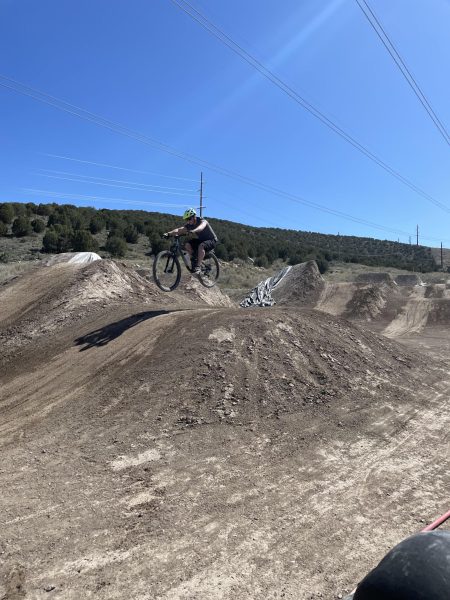
The traveling man flies and sways
Like a cloud away
From Escalante
With a pocket full of poems
And a pack full of songs
And when they dig up his bones
If it’s even his they find
They may put it in the papers
And make up some morbid story
But the traveling man now just sighs
And somehow, he is peace
Because it’s not so bad a fate
To disappear outside
Of Escalante
The post Everett, where did you go? appeared first on Wasatch Magazine.


